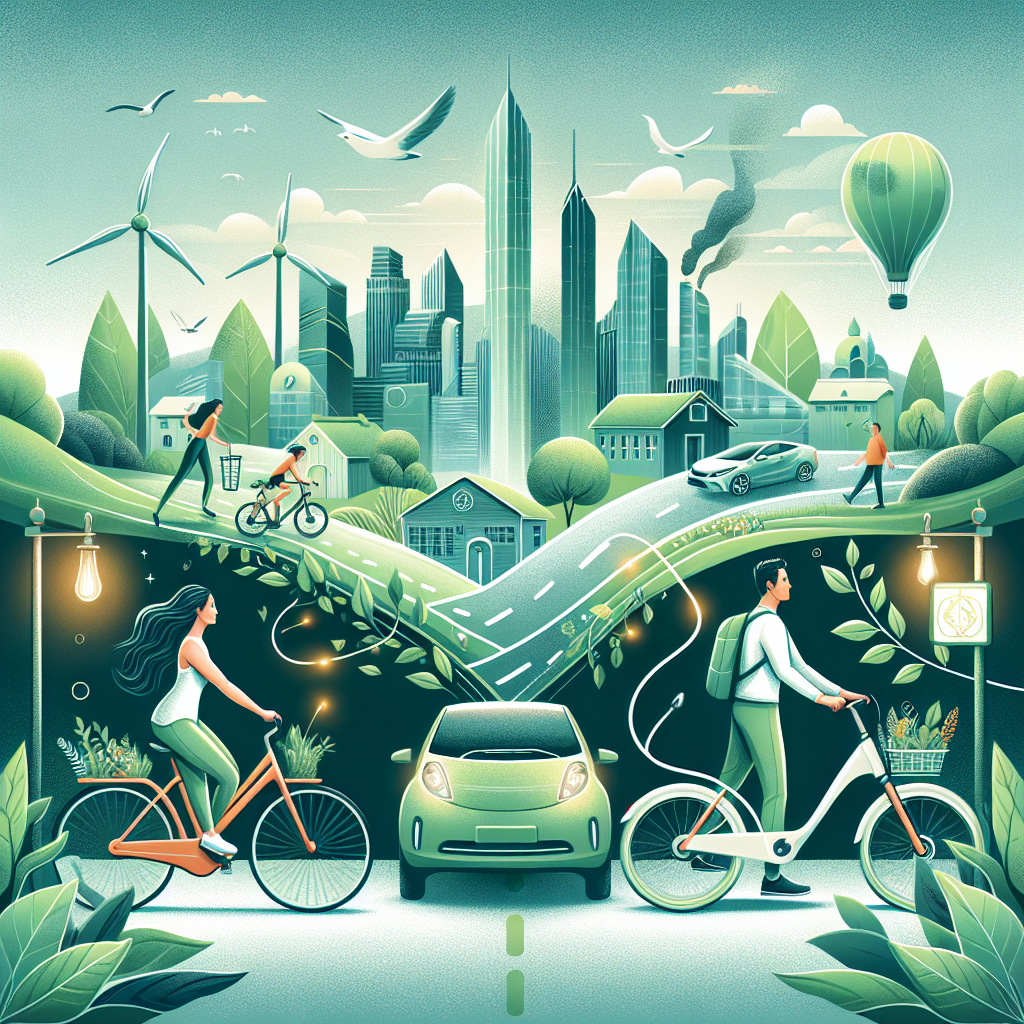In an exclusive discovery that many have overlooked, we find that at the nexus of lifestyle choices and environmental sustainability, a revolution is quietly taking shape: sustainable travel, increasingly adopted worldwide, is reshaping our future.
Historically, traditional forms of travel such as private cars and airplanes have dominated transportation landscapes. Unfortunately, their massive carbon emissions contribute significantly to climate change—a global disaster requiring immediate attention.
However, there’s hope: leaders are proposing reformative measures like electric vehicles (EVs) and enhanced public transit systems that promise reduced greenhouse gas emissions without compromising mobility needs.
The implementation process has begun gradually with cities around the world adopting cleaner mass-transportation methods or incentivizing EV use through tax breaks and other subsidies.
The impact on students traversing cities for education is palpable too. Many schools now boast ‘carbon-neutral’ commutes via initiatives like walking school bus programs or bike-to-school schemes—proving essential in nurturing young eco-conscious minds.
‘There’s been a notable shift towards more sustainable practices,’ says Martha Collins, a high school teacher who spearheaded her school’s cycle-to-class initiative. ‘It instills in students a sense of responsibility towards their environment.’
Parents too resonate with this trend but also voice concerns about safety and feasibility of these new modes of transport. Adequate safety measures, governmental support for infrastructure development, and reassurance about sustainable alternatives’ reliability are necessary to dispel such apprehensions.
‘I love the idea, but my worry is safety – can kids really bike safely?’ says Joan Rivers, a parent in New York City.
Despite initial resistance, numerous success stories are popping up globally. Cities like Copenhagen and Amsterdam lead with world-class cycling infrastructure while China flaunts its impressive electric bus fleet — a testament to the tangible changes achievable through determined effort.
‘The change won’t happen overnight; it requires collective societal effort,’ advises Imran Ghani, CEO of ZunRoof Tech Pvt Ltd., which offers e-bike sharing services throughout India.
As we move forward on this path of transformational change driven by sustainability within our travel habits, challenges persist: outdated infrastructures demand upgrades while rising global populations require increased capacity—an uphill battle requiring innovation and investment from governments worldwide.
The Future Path Is Clear
No longer is sustainable travel an option—it has become a necessity. It demands immediate engagement from every stakeholder—from students commuting to school or adults heading to work—to collectively shape our future landscape into one that promises prosperity without compromising the planet we call home. The revolution has begun—it’s time to choose your ride wisely.
